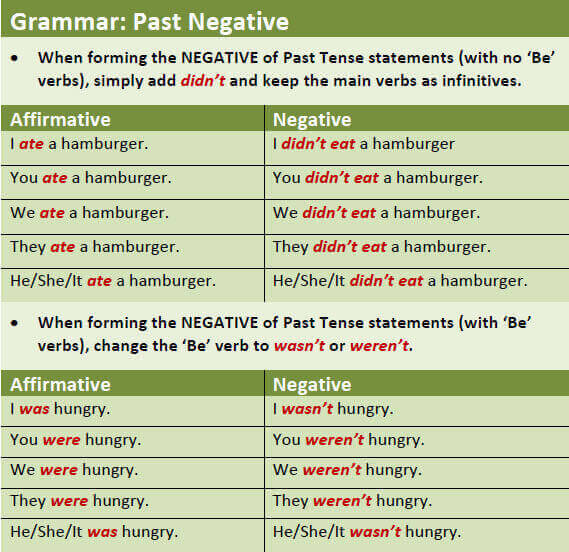Tag: grammar
Uses of For, Since and Ago For, since and ago are used to talk about time. For is used to indicate a period of time. It is often used …
Pronunciation of “ED” The pronunciation of words ending in ED depends on the final consonant sound. There are three ways to pronounce ED at the end of a word …
Conditionals Zero conditional, first conditional, second conditional, third conditional
Stative and Action Verbs Some verbs can be both stative and action verbs. think, have, taste, smell, sound, look … Follow the list for examples;
Past Negative – Grammar Study When forming the NEGATIVE of past tense statements(with no ‘Be’ verbs), simply add didn’t and keep the main verbs as infinitives.
Uses of “Each”, “Every”, “Either”, “Neither” These distributive words are normally used with singular nouns, and are placed before the noun. Each, either and neither can be used with …
Uses of “Had Better Do Something” and “Had Better Not Do Something” The meaning of had better (‘d better) is quite similar to ‘should’.
Uses Of Some Prepostions – “Across from”, “On”, “Between”, “Next to”, “Near”, “Far from” Visual expression, Follow the picture;
Uses of Used to and Be Used to Used to: an action or habit that was common in the past but not anymore. Be used to: being accustomed to …
Uses of “There is” and “There are” We use there is and there are to say that something exists. There is is singular, there are is plural.










